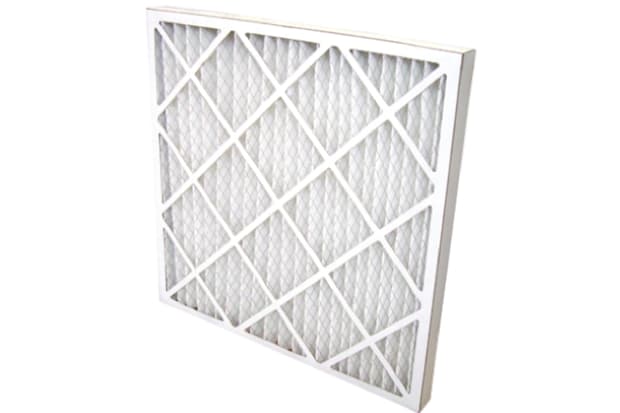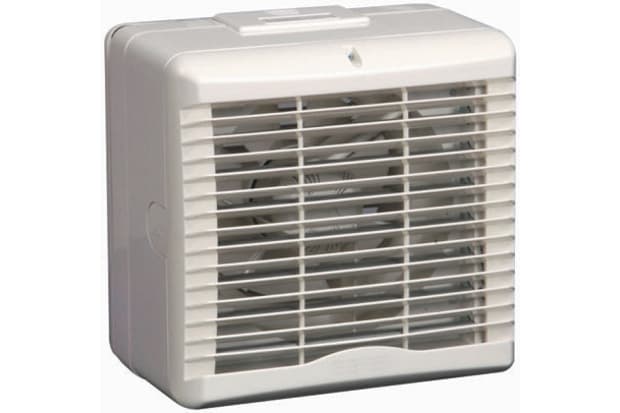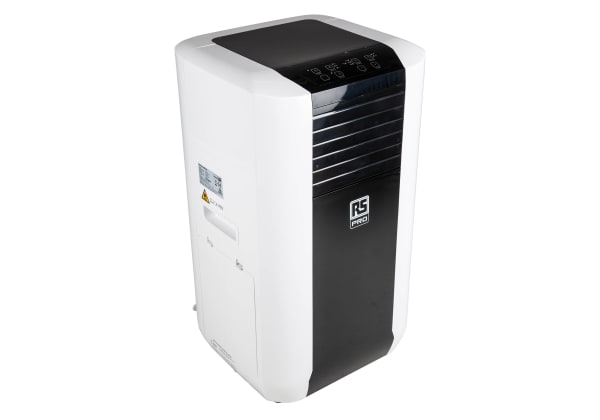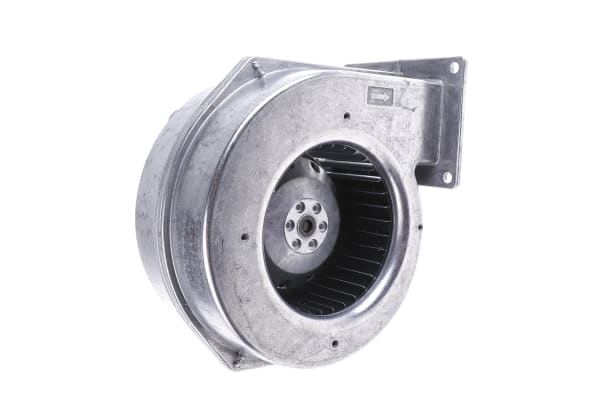- Published 28 Nov 2023
- Last Modified 28 Nov 2023
- 7 min
How to Create a HVAC Maintenance Plan
Industrial HVAC is great when it’s working well but disastrous when it fails. With the right HVAC maintenance plan, you can breathe easy knowing your employees, buildings, and customers are safe and comfortable.

Reviewed by David Carmichael, Solution Engineer (November 2023)
HVAC system maintenance is an essential part of running an industrial business. It avoids equipment replacement costs, saves energy, and improves workplace comfort. A HVAC maintenance plan will carefully consider the needs of your equipment and building to determine the corrective, preventative, risk-based, and predictive maintenance that meets its needs and fits your budget. This guide outlines those four maintenance phases along with HVAC maintenance checklists and best practices.
What is HVAC Maintenance?
HVAC maintenance is the steps you take to keep your heating, ventilation, and air conditioning (HVAC) equipment working when you need it to be—which is all the time! This involves replacing filters, cleaning ducts and air entry/exit points, checking for leaks and noise, lubricating fan drives, and monitoring performance.
Why is HVAC Maintenance Important?
When HVAC systems are working properly, we tend to forget about them. But when they fail, it’s impossible to ignore. Unbearable heat in the summer, uninhabitable chills in the winter, and uncomfortable air anytime all need immediate fixes, and by then the cost will make you sweat even more. HVAC maintenance thus has many benefits:
Avoiding Replacements: With the right HVAC maintenance plan, you can cut out the high costs of replacing commercial HVAC systems and the downtime involved. You will see a better return on investment for the equipment you have in place—although you shouldn’t neglect to replace units when their time has truly come. A HVAC maintenance plan will allow you to do this on your own terms at costs you can control.
Energy Efficiency: Properly performing HVAC systems will use the energy they consume and you pay for more efficiently. HVAC system maintenance will mean more energy producing heating and cooling and less wasted on emissions, noise, and heat loss.
Comfort and Morale: Keep your facility a comfortable and healthy place to work by proactively ensuring the air is the right temperature and quality. If your employees and visiting customers aren’t giving your HVAC system a second thought, you’re maintaining it well!
Peace of mind: The peace of mind from mitigating all these risks is priceless, and you can achieve this with the right HVAC maintenance plan.
What Should be Included in a HVAC Maintenance Plan?
What are the Four Phases of Planned HVAC Maintenance?
An effective HVAC maintenance plan will strike a balance between the following four phases:
Corrective: Corrective maintenance is what it sounds like: fixing problems when they arise. Of course, replacing your only air conditioner after you’ve let it run until it dies is a poor, costly plan. However, corrective maintenance has its place: if replacement costs and time are truly negligible, and if you’ve established redundancy and inventory, a ‘run-to-failure’ plan can work for less crucial units, such as ceiling fans.
Preventative: Preventative maintenance establishes service schedules for equipment based on fixed dates, hours of operation, or certain conditions (such as an airflow restriction that’s been detected). This type of HVAC maintenance plan could feature inspection and service for air conditioners every 1,000 operating hours and yearly cleaning of ductwork, for example.
Set up correctly, this can be a foolproof commercial HVAC maintenance regime, since it should detect all issues in time. It does mean frequent maintenance costs, though, which may make the remaining phases even more appealing.
Risk-based: Risk-based maintenance carefully weighs equipment maintenance costs against the likelihood of breakdown and replacement costs. A trained technician analyses system performance data (which you’ll need to collect a lot of) and models when breakdowns or degraded performance are expected. This approach means you carry out the maintenance your industrial HVAC equipment needs, and only when it needs it. Risk-based maintenance is challenging to set up and inherently risky (with the payoff being optimised maintenance costs).
Predictive: Predictive maintenance is similar to risk-based maintenance but makes even greater use of condition-based monitoring (CBM) and uses machine learning. Through advanced algorithms you can detect HVAC system problems at an early stage when they’re far less costly to fix. This requires high upfront costs for instrumentation, as well as the ongoing costs of software and its users, but the expense can be worth it if you avoid the cost associated with equipment breakdown.
With a careful combination of these four phases, you can establish a HVAC maintenance plan best suited to your business’s needs.

HVAC Maintenance Checklist
This HVAC safety checklist broadly covers commercial HVAC maintenance, but always tailor your HVAC maintenance plan to your property’s needs.
Replace
- Replace all HVAC filters.
- Replace or refill air conditioner refrigerant. (‘Recharge’ the system.)
- Replace disposable batteries on units that have battery backups.
Lubricate
- Apply lubricant to any moving parts that require it, such as fan drive mechanisms.
Inspect
- Visually inspect all equipment.
- Check fan belt tension.
- Check for fluid leaks, especially in refrigerant lines.
- Inspect carbon monoxide detectors.
- Listen for unusual noise.
- Verify vents open and close when required.
- Verify enclosures are secure (from rodents, etc.).
Clean
- Clean ducts.
- Clean air entry and exit points.
- Clean coils on evaporators and condensers.
- Clean burners.
- Clean and inspect flame sensors.
- Clean out drainage lines and traps.
- Clean fan blades.
- Clean filters (rather than replace them) if this is practical.
Test
- Test airflow rates in ducts.
- Test thermostat responsiveness.
- Calibrate instruments that require it.
HVAC Preventative Maintenance Best Practices

Along with detailed HVAC safety checklists, there are broader practices to keep in mind as you plan your HVAC system maintenance and implement it each year.
Establish and keep a safety stock of consumable parts: not just HVAC filters, but also fan belts and even a small stock of instruments if your system relies heavily on condition-based monitoring.
Keep airflow unobstructed, wherever it comes in or goes out. Free-flowing air means an efficient HVAC system. Monitor all intake and exhaust vents, both indoors and out, and ensure nothing gets placed in their way. You also want to minimise contaminant entry, so space air conditioners and other industrial HVAC units at least 2 feet from plant and other debris sources to protect the coils.
Unexpected breakdowns may still happen, so knowing trusted technicians you can call on for HVAC repair will be vital. Ideally, they’ll be ongoing contacts for your HVAC maintenance plan. In turn, make sure your employees know how to report HVAC system issues. Human comfort is the whole goal, and we’re all our own instruments for gauging it.
Understand what your warranties do and do not cover. They provide a measure of peace of mind but may not go further than parts replacement. Be aware of what proactive HVAC maintenance you need to provide.
When it’s time to replace your HVAC units, keep maintenance front-of-mind. Learn about all the costs of ownership, including operation and maintenance, before making these extremely important purchases for your business.
And although commercial HVAC can achieve amazing things, consider supplementing it with Mother Nature: keeping the right plants in the workplace can naturally improve air quality along with brightening your spaces up! For technological solutions, though, browse our HVAC management systems.


